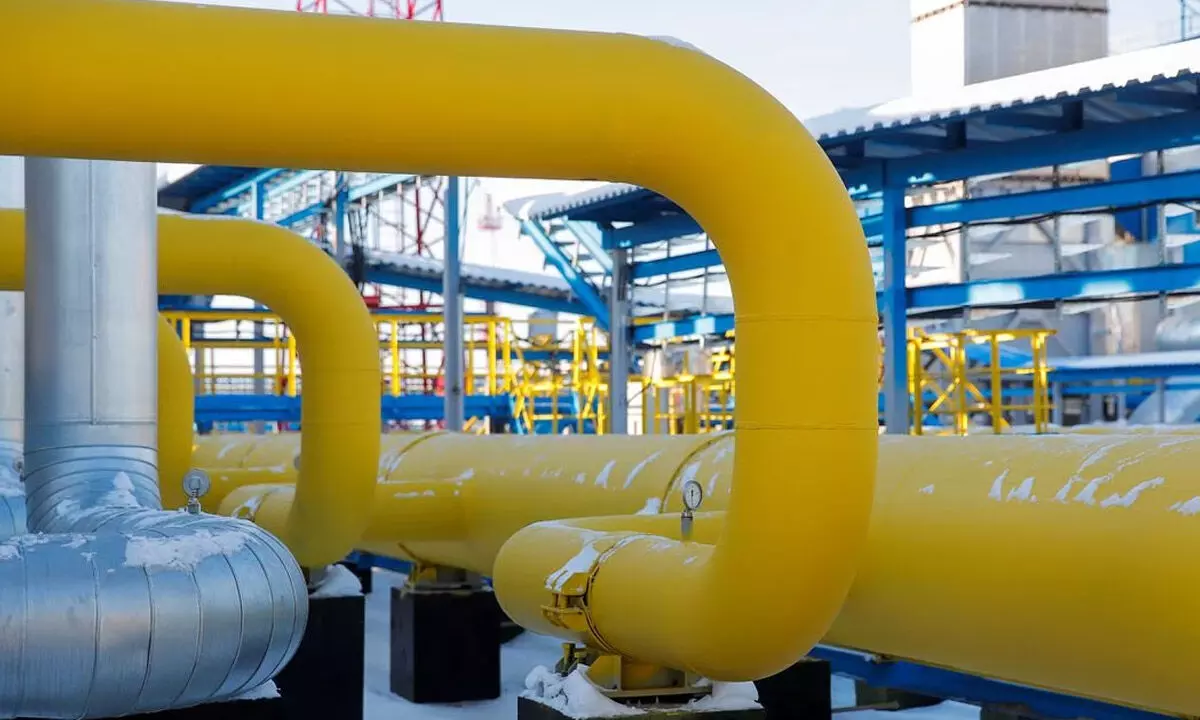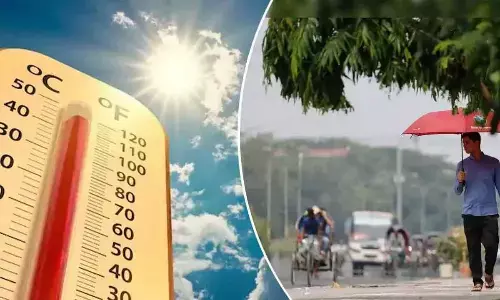Russia-China energy cooperation in focus as Putin visits Xi
Share :

Since the start of the Ukrainian conflict, Russia, a leading global oil producer, has cemented its energy ties with China, the world's No. 2 oil consumer after the United States.
MOSCOW: Since the start of the Ukrainian conflict, Russia, a leading global oil producer, has cemented its energy ties with China, the world's No. 2 oil consumer after the United States.
Beijing has rejected Western criticism of its growing partnership with Moscow in light of Russia's conflict in Ukraine. It insists the ties do not flout international norms, and China has the prerogative to collaborate with whichever country it chooses.
According to China's customs data, the growth of China's exports and imports with Russia on a year-on-year basis quickened in September from August.
Bilateral trade value surged to $21.18 billion last month, the highest since February 2022 when Russia started its military operation in Ukraine.
Last month, Chinese Commerce Minister Wang Wentao said China-Russian economic and trade cooperation had deepened and become more "solid" under the "strategic guidance" of their two leaders.
Following is a list of some key energy projects and developments between Russia and China:
OIL
Russia exports around 2.0 million barrels of oil per day to China, accounting for more than a third of its total crude oil exports. China is Russia's second-largest buyer of Russian oil after India.
About 40% of supplies flow via the 4,070-km (2,540-mile) East Siberia Pacific Ocean (ESPO) pipeline that was financed by Chinese loans worth an estimated $50 billion.
From January to September, Russia supplied 1.3 million bpd of seaborne crude, based on the average of data supplied by Vortexa and Kpler. China also imported about 800,000 bpd of ESPO crude via pipeline, according to Chinese trading sources.
The seaborne imports are mainly ESPO shipped from Russia's Pacific port of Kozmino as well as Urals from the Baltic Sea.
From January to September, total Russian shipments grew by over 400,000 bpd from a year earlier, led by Urals, according to tanker tracker Vortexa.
China has this year saved $4.34 billion by importing Russian oil, based on Reuters' comparison of the monthly price differentials between ESPO and Tupi crude from Brazil, and Urals versus Oman, using price information provided by traders.
PIPELINE GAS
Russia's pipeline natural gas exports to the European Union may fall to 21 billion cubic metres (bcm) this year, almost two-thirds lower than last year and a more than a six-fold drop from 2021, according to a forecast by Russian state bank VEB.
That's below 22 bcm, which are expected to be supplied via the Power of Siberia to China this year, meaning Russian pipeline gas exports to China will outstrip Russia's gas exports to Europe for the first time.
Russia's main gas export route is a 4,000-km (2,500-mile) pipeline Power of Siberia that links East Siberian fields to northeast China.
Supplies via the Power of Siberia pipeline, which is not connected to the network of westbound Russian gas pipelines, began in late 2019 and are due to rise to 38 bcm a year by 2025, up from 10.5 bcm in 2021 and 15.5 bcm in 2022, under a 30-year contract worth more than $400 billion.
Russia aims to build a second gas pipeline to China, Power of Siberia 2, with capacity for 50 bcm a year to run via Mongolia.
However, the talks about prices and other issues related to the route have so far failed to yield any tangible results.
During President Vladimir Putin's visit to China last year, he secured a 30-year contract to supply 10 billion cubic metres of gas a year to China via a new pipeline from Russian island of Sakhalin.
Russia's Novatek wants to rival Qatar as the world's largest LNG producer over the coming decades and Chinese firms including CNPC have invested in its Yamal LNG and Arctic LNG-2 projects.
Russia also may supply up to 10 million tons of liquefied natural gas to China this year of total 33 million tons of LNG produced in Russia.







